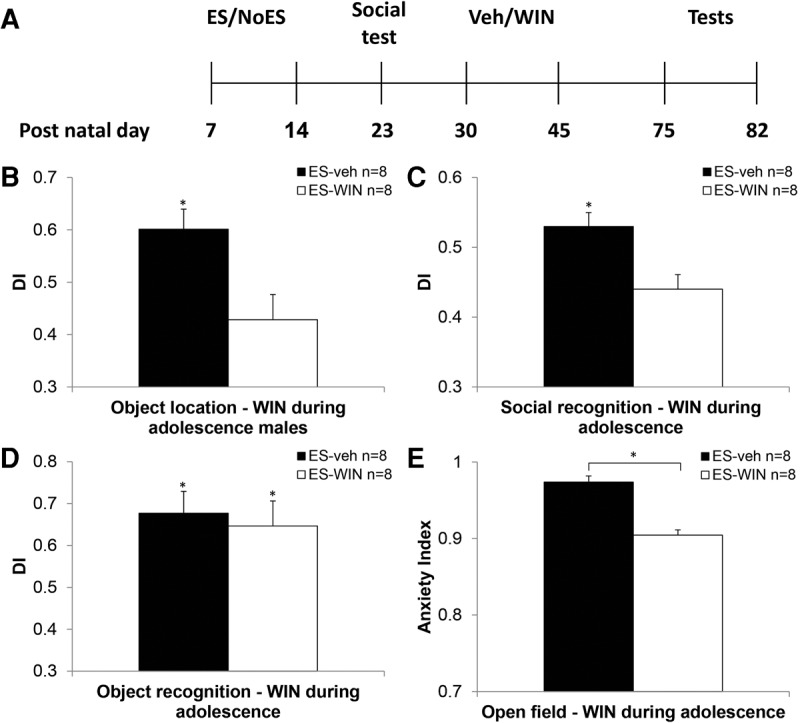Figure 5.

The effects of chronic cannabinoid treatment during the adolescence period on short-term memory and anxiety in early stressed males. (A) Experimental design: The dam and her pups were housed in a cage with limited (ES) bedding material from P7 to P14. On day 23, pups were exposed to a social interaction test to verify that early stress exposure results in impaired social behavior. During the adolescence period (P30–P45) rats received 14 injections of vehicle (veh) or the CB1/2 agonist WIN. On P75 rats were taken to neurocognitive tests (object location, object recognition, and social recognition) and to the open field for an anxiety test (P75–79: habituation to the memory tests arena; P80: object recognition; P81: object location; P82 social recognition; P83 open field). (B) ES WIN-treated adolescent males demonstrated impaired performance in adulthood in a spatial recognition task compared to ES vehicle-treated males. (C) ES WIN-treated adolescent males demonstrated impaired performance in adulthood in a social recognition task compared with ES vehicle-treated males. (D) No difference in performance in the object recognition task was observed. (E) ES WIN-treated adolescent males demonstrated less anxiety in an open field test compared with vehicle-treated rats in adulthood. (*P < 0.05).
